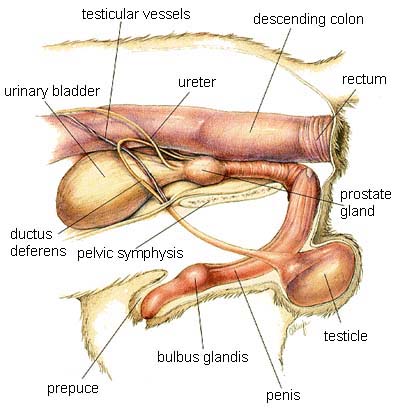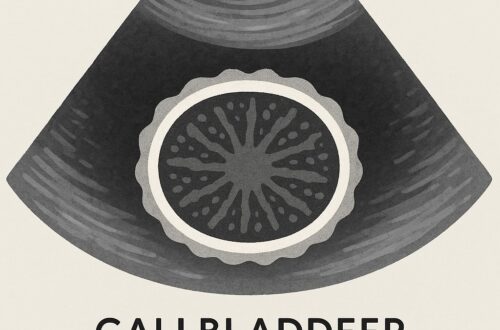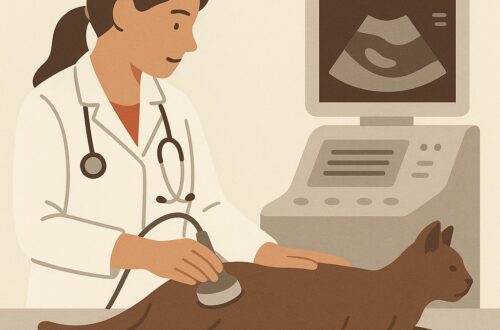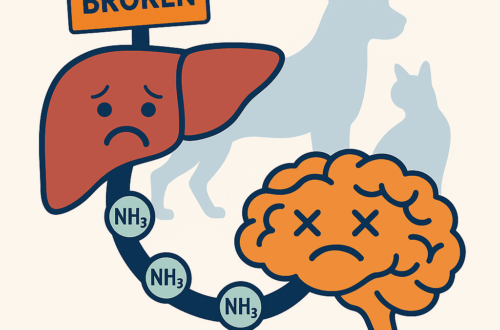An essential component of a complete physical examination for every male dog is an evaluation of the prostate, a walnut-sized gland located between the urinary bladder and the penis. The prostate is a secondary sex gland of male dogs that adds fluid that makes up semen to help transport sperm produced in the testicles. The activity of the prostate is largely influenced by the hormone, testosterone. With castration this gland atrophies (shrinks) to a fraction of its size.

Proper examination of the prostate requires a veterinarian to perform a rectal examination, and unfortunately at least in my experience, this is one of the most over-looked and under-appreciated components of a male dog’s physical examination. A fellow board-certified emergency and critical care colleague previously opined that there are only two reasons not to perform to rectal examination:
While prostate diseases can affect any male dog, older uncastrated ones are over-represented in general. However prostate cancer is much more common in geriatric neutered dogs.
What are common prostatic diseases?
Major diseases of the prostate include benign prostatic hypertrophy, prostatitis (inflammation & infection of the prostate), abscessation, and prostatic cancer.
Benign prostatic hypertrophy (BPH)
Benign prostatic hypertrophy is a common cause of prostatic enlargement in intact dogs due to the effects of testosterone. Many dogs with BPH do not have clinical signs, but some may strain to defecate, have a bloody discharge from the penis and/or have blood in urine. Rectal palpation of the prostate usually reveals a symmetrical prostate gland that is not painful.
Bacterial prostatitis & abscessation
Due to the influence of testosterone, individual prostatic cells become bigger and produce more fluid. Ultimately small cystic structures may develop, increasing the gland’s susceptibility to bacterial infection (prostatitis and abscessation). A veterinarian will frequently discover an irregularly enlarged and often painful prostate gland via rectal examination; if the prostate is very big, a doctor may be able to feel it with palpation of the abdomen. Families may report their pet has blood in urine and/or has difficulty urinating and/or defecating.
Prostatic cancer
Prostate cancer is seen exclusively in geriatric dogs, and this disease is typically quite insidious in onset and highly malignant. Several breeds are over-represented, particularly:
- Bouvier des Flandres
- Doberman Pinschers
- German Shorthaired Pointers
Castrated male dogs are more than four times more at risk for developing prostate cancer than intact male dogs. Common clinical signs include blood in the urine, painful urination, urinary incontinence, painful defecation, and weight loss. These clinical signs are not specific for prostate cancer, and therefore must be differentiated from other diseases, including non-prostatic disorders.
How are prostate diseases diagnosed?
As mentioned earlier in this post, a veterinary should always perform a complete physical examination, including evaluation of the prostate gland via rectal examination. Some initial blood and urine tests are often very helpful, but ultimately working with a board-certified veterinary internal medicine specialist will be invaluable. A minimally invasive test called a prostatic wash that allows the doctor to obtain cells and fluid from the prostate can often provide a definitive diagnosis. Occasionally ultrasound-guided procedures (aspiration or biopsy) or surgery of the prostate is required, and working with board-certified veterinary specialists in internal medicine and surgery can be uniquely helpful. For patients with prostate cancer, diagnostic imaging studies, including an abdominal ultrasound and chest radiographs (x-rays), are recommended to determine if there is any evidence of metastasis (spread of cancer to other sites in the body).
How are prostate diseases treated?
Benign prostatic hypertrophy
The most effective means of treating BPH is castration to remove the influence of testosterone on the prostate gland. Although less ideal, anti-testosterone medications may be effective if families are unwilling to have their dog castrated.
Bacterial prostatitis & abscessation
The recommended treatment for bacterial prostatitis is castration and appropriate antibiotic therapy based on culture of fluid obtained from a prostatic wash procedure. Antibiotic treatment alone will only offer temporary improvement of clinical signs, and signs of illness will inevitably recur with discontinuation of antibiotic therapy. Only appropriate antibiotic therapy with concurrent castration offers a chance for a meaningful cure. Patients with large cysts and abscesses frequently require surgery to effectively drain infected fluid.
Prostatic cancer
The families of most dogs with prostatic cancer elect not to pursue treatment either because of a poor prognosis or due to the presence of metastasis. Some treatments that have been employed for dogs include:
Surgery:
Radical resection of the prostate is complicated by the relatively high incidence of post-operative urinary incontinence. Partial prostate removal has been performed, but true survival benefit has not been thoroughly investigated at this time.
Radiotherapy:
Use of radiotherapy has been used in combination with surgery in a few dogs; to my knowledge, it has never been used alone in dogs. The mean survival time in one study was 114 days. Palliative radiation therapy may provide improved patient comfort during hospice.
Chemotherapy:
Unfortunately to date no chemotherapeutic protocol has been shown to be meaningfully effective for the treatment of prostate cancer in dogs. Several drugs (mitoxantone, carboplatin, gemcitabine, toceranib) have been used, but results have been uniformly discouraging. With that being said, the use of specific non-steroid anti-inflammatory drugs (NSAIDS), particularly piroxicam, has been investigated because some prostate tumors express receptors for these drugs; manipulation of these receptors may impart both anti-inflammatory and temporary anti-tumor effects.
Emerging therapies:
Veterinary cancer research is progressive, and new treatment modalities are perpetually emerging. Some novel interventions for prostate cancers in dogs are stereotactic radiosurgery (SRS or CyberKnife), immunotherapy and photodynamic therapy. Consultation with a board-certified veterinary cancer specialist is strongly recommended for any patient who has been diagnosed with prostate cancer.
The take-away message…
Non-cancerous prostate diseases in dogs are most commonly identified in older uncastrated dogs, but cancers of the prostate gland are much more common in older castrated dogs. Partnering with a board-certified veterinary internal medicine specialist can be extremely helpful for obtaining an accurate diagnosis, and working with a board-certified veterinary cancer specialist will be invaluable for selecting the best treatment plan for a patient with prostate cancer.
To find a board-certified veterinary internal medicine specialist or veterinary cancer specialist, please visit the American College of Veterinary Internal Medicine.
To find a board-certified veterinary surgeon, please visit the American College of Veterinary Surgeons.
Wishing you wet-nosed kisses,
cgb






